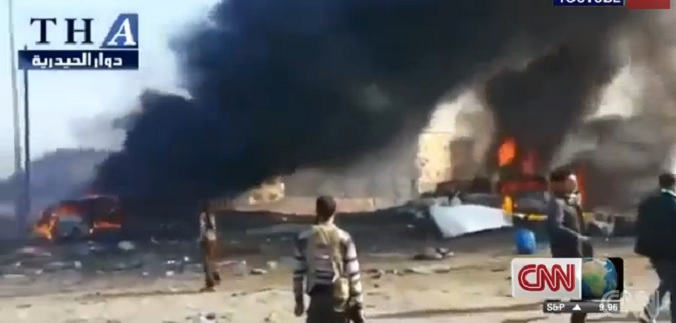Secretary of State John Kerry this week condemned the use of so-called barrel bombs by Syria’s Bashar al-Assad regime, blasting Damascus for the repeated use of the shrapnel packed IEDs against Syrian civilians. The attacks, in which the bombs are dropped out of helicopters, have in recent days generated a wave of new casualties.
Mr Kerry said that “each and every day that the barrel-bombing of Aleppo continues, the Assad regime reminds the world of its true colours”. “It is the latest barbaric act of a regime that has committed organised, wholesale torture, used chemical weapons, and is starving whole communities by blocking delivery of food to Syrian civilians in urgent need,” he said. “Given this horrific legacy, the Syrian people would never accept as legitimate a government including Assad.”
Policy debates surrounding the regime’s use of barrel bombs are not straightforward. The insidery Night Watch intelligence bulletin, which has been pointedly unsympathetic to advocates of Western intervention into Syria, noted that Kerry’s statements “imply that opposition forces are too feeble to shoot down helicopters dropping 50 gallon drums packed with explosives.” The implicit implication, per NightWatch’s assessment, is that Assad is more stable – and more difficult to dislodge – than some pro-intervention analysts suggest. The Washington Post in contrast editorialized late on Wednesday in favor of what it described as “a number of options for action in Syria that would be more robust than the current policy,” outlining a range of potential diplomatic and security assistance policies. The Post concluded its editorial by suggesting that the paucity of good choices was a function of “U.S. inaction over the past three years.” Western nations had earlier this month promised to renew pressure on Assad in the aftermath of failed peace talks.
[Photo: CNN / YouTube]




